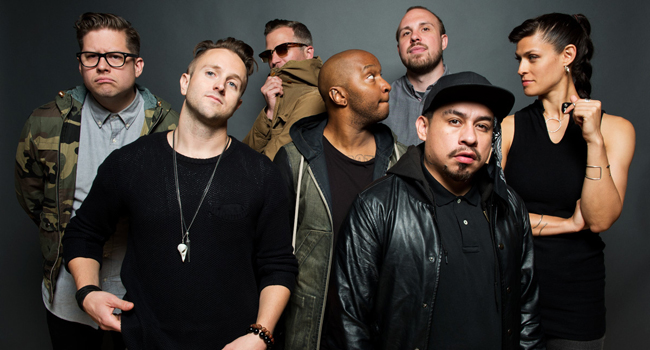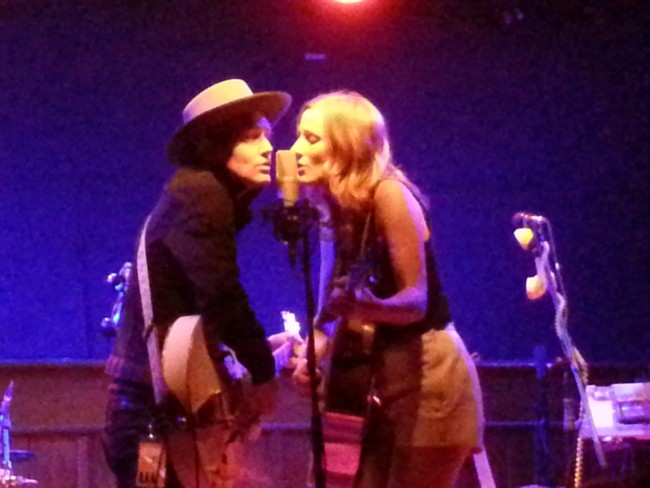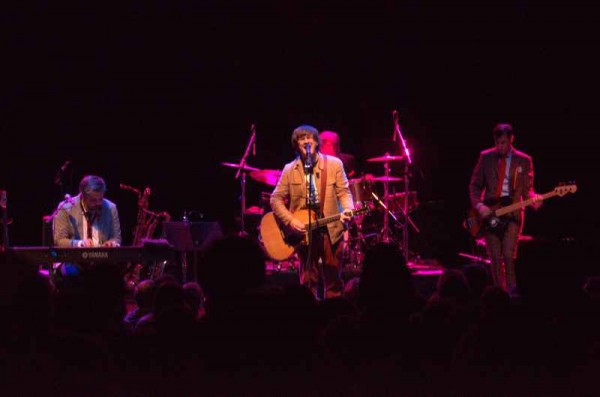 James Franco looks fucking ridiculous. It’s early afternoon in St. Petersburg, Florida and Franco, cornrowed and sporting a grill only Nelly would love, screams to a crowd of a few dozen scantily clad teenagers “bikinis and big bootys ya’ll that’s what life is about!”
James Franco looks fucking ridiculous. It’s early afternoon in St. Petersburg, Florida and Franco, cornrowed and sporting a grill only Nelly would love, screams to a crowd of a few dozen scantily clad teenagers “bikinis and big bootys ya’ll that’s what life is about!”
Later in the week he will bail out a quartet of semi-demonic spring breakers and offer them a tour of his life, complete with gun sodomy and earnest massacres of substandard Britney Spears singles. He’s a little nervous that the reputation he’s garnering on the street will anger his former mentor, Gucci Mane, but for now he is content strutting around on stage spitting inane verses to his hit single.
James Franco may look fucking ridiculous in his ghetto cabana boy decor, but Alien doesn’t. Alien is the human MacGuffin of Harmony Korine’s newest, highest gloss film Spring Breakers. A seemingly insatiable hyper-stereotype of the possession driven white rapper looking to prove himself in a typically African-American world, Alien makes Spring Breakers less a cautionary tale of what happens in Florida in March than something on the side of winking low-culture minstrelsy.
Discomfort has always been one of Korine’s favorite weapons in his war room; Spring Breakers ups this uncomfortable ante by playing on the audience’s prejudices against low, materialistic forms of culture. Nowhere is this more apparent than in Korine’s repeated references to and usage of contemporary music industry straw men. From the film’s vile first few minutes, a repugnant montage of nude and semi-nude women being fed alcohol from boardshorted frat boys, Korine draws a clear line between what he believes to be the amorality of certain genres and musical artists.
One could guess that his favorite (consenting) whipping boy is Sonny Moore, aka EDM superstar Skrillex. Moore’s megahit, “Scary Monsters and Nice Sprites” coasts over the film’s opening sequence, nicely tying in themes of exploitation and dubstep to Spring Breakers that Korine fully intends to be there. Skrillex and friends Ellie Goulding, The Weeknd, Nicki Minaj and MIA pop in and out of scenes involving decrepit hotel rooms, vicious chicken shack robberies and Alien’s colorfully Martian ride as if to dissuade from the feeling that Spring Breakers is about anything other than the degradation of culture at the hands of the Top 40.
Whatever morality play is at work in Korine’s brain gets lost in Franco and the Harpies’ (Selena Gomez, Vanessa Hudgens, Ashley Benson and Rachel Korine) performances, themselves.
This is a reminder that even the seemingly innocent are just rotten to the core.
The possibility that Korine means for Spring Breakers to be a cautionary tale about the dangers of spring break isn’t out of the question; what makes the film, and its soundtrack, such a farcical piece of snobbery is that at most points, without trying, the movie gets laughs.
Spring Breakers and it’s soundtrack are not without humor, if a sickeningly metatextual form of “funny ha-ha.” What feels so wrong and mistrel-like about the film is that frequently, in screenings, laughs were generated not from a place of humor, but from an upturned nose. Look at the cunning and well-educated actors playing these stupid, money-grubbing people and listening to such terrible music! We are not like them – we’re in on the joke.
Again, Korine may have anticipated such reaction – hell, why else would he have chosen to have Franco and company sing Britney Spears’ “Everytime” over a montage of the crew generally wreaking havoc on others? What Spring Breakers is then, is an ugly funhouse mirror not on what actually happens in Florida on spring break, but what happens when a seemingly well educated populace sits down to watch a movie about spring break.
This precedent holds for the movie’s music, whether diagetically tied to the film or not. Skrillex, thanks to music blog apologism, has risen to a sort of begrudging hipness, a state of such divisiveness that whatever good qualities his music might have (not many) are overlooked because it’s just so cool to talk about it. In the end, music intelligentsia can slag on the merits of Skrillex or the rest of the wall of computerized noise that is the Top 40, only to realize that there’s no such thing as bad press. Sitting down and watching Spring Breakers or listening to its abusive soundtrack are successes in and of themselves. Franco may be a Yale-graduated actor playing a version of Riff Raff, but laughing when he talks about “all my shit!” as if one is above it lowers the cultural conversation by assuming an uneven playing field.
Which is why as exploitative and smuttish Spring Breakers may feel, it’s soundtrack and vigorous display of raunch speak to the way the music and film literati talk about their respective cultures. For Korine, it’s validation that his oeuvre isn’t just about low production values – he’s confrontational even when he’s ripping off Drive. For Skrillex and the rest of his low-culture cohorts, the movie could either be easy validation that EDM and related genres only belong surrounding the most virulent, vapid members of our society. Or the excessive a cappella covering of teen pop hits by the Harpies could hint that wall of sound EDM or opulent-spewing rap is just as confrontational as high art.
The reality is, as always, somewhere in between. Spring Breakers is extremely good at unsettling established opinions about what commercial youth-oriented cinema, but it only achieves those means via plumbing the deepest depths of the id of commercial youth-oriented cinema. It’s soundtrack, while certainly rife with dance and hip-hop Top 40 fodder, says more about the people immediately scoffing or laughing at it than it does about the characters on screen who love it.




